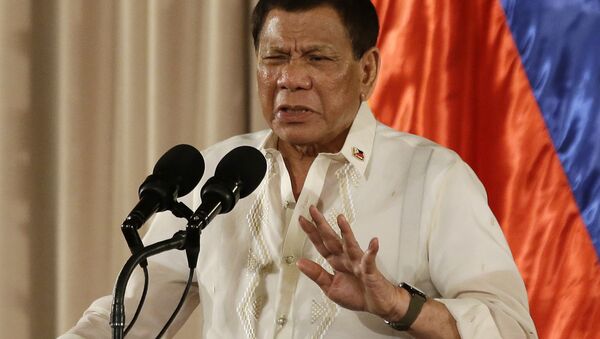Sputnik spoke with Dr Rikard Jalkebro from the School of International Relations at the University of St Andrews to gain an insight into the current political situation in the Philippines.
Sputnik: If Duterte changed the Philippines into a federal state; what impact would this have on the country?
Dr Rikard Jalkebro: There are many different ways the country could go in. For the moment there’s no clarity on how it will be conducted, there are of course several drafts to the so called federal system, but they are all pointing in different directions. Of course by changing the constitution and turning the Philippines into a federal state, it’s supposed to cure the country’s social, political and economic ills. At the moment there’s also a risk that this is a rushed decision, the system is constrained to a six year period and there will be presidential elections in 2022, which means that this will be rushed through congress. There’s also not much room for debate and discussion, which is limiting the ability for the people to make an informed decision on this because there’s a plebiscite that will decide whether or not to go through with this after reaching an agreement in congress of course. We’re also seeing a problematic situation with the overall political climate. They’re making critique difficult and the administration is clamping down on press freedom.
Sputnik: How long do you believe Duterte will remain in power?
Dr Rikard Jalkebro: He’s been very open about this and he would stay longer if possible. The vice presidency however is more or less up for grabs, the main position now though is that the president is in power for five years, with an opportunity to be re-elected for another five years and with putting the new system into force, he is likely to remain president for some time.
Sputnik: Have Duterte’s policies on drugs and national security been successful since his rise to power?
Dr Rikard Jalkebro: I wouldn’t say they’ve been successful, however in the view of the public, they feel more secure and safe in their everyday lives, but as you can see there are a lot of extrajudicial killings going on vis a vis the war on drugs and also we have the military’s attempt to liberate Marawi city and obviously the heavy bombardment has left it destroyed.


